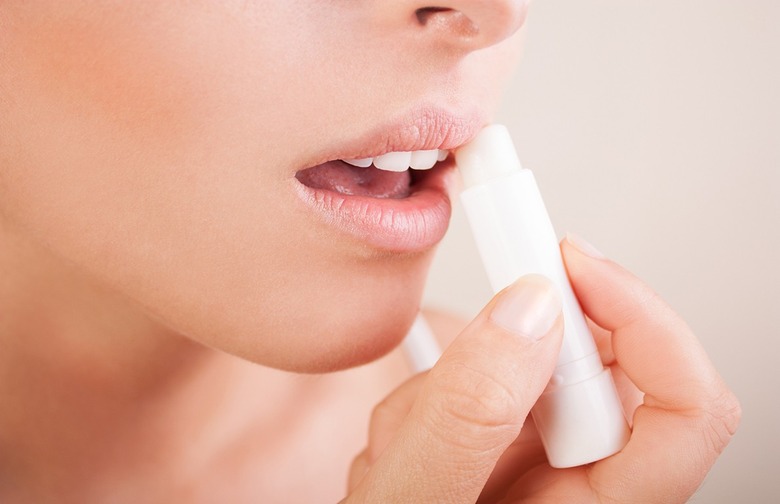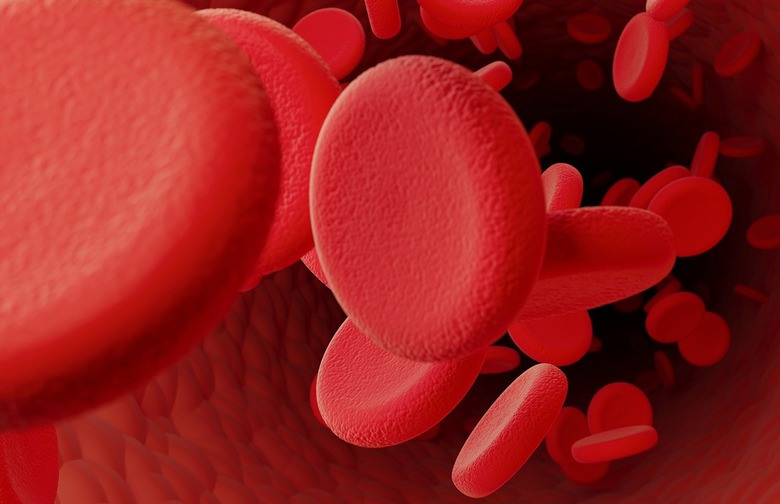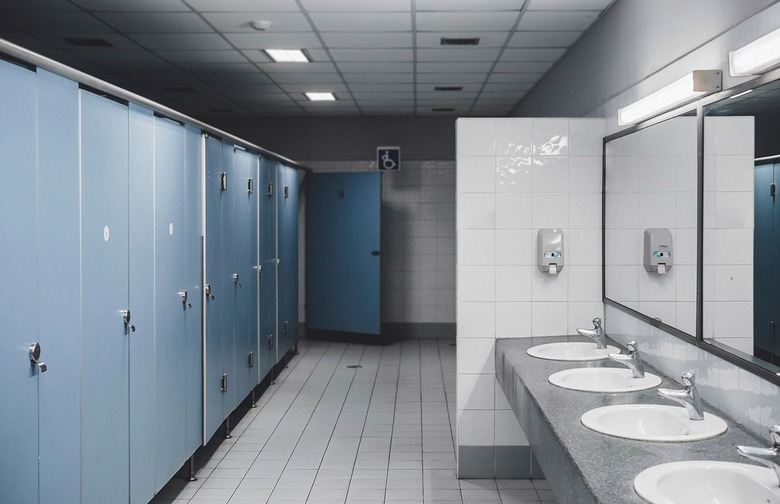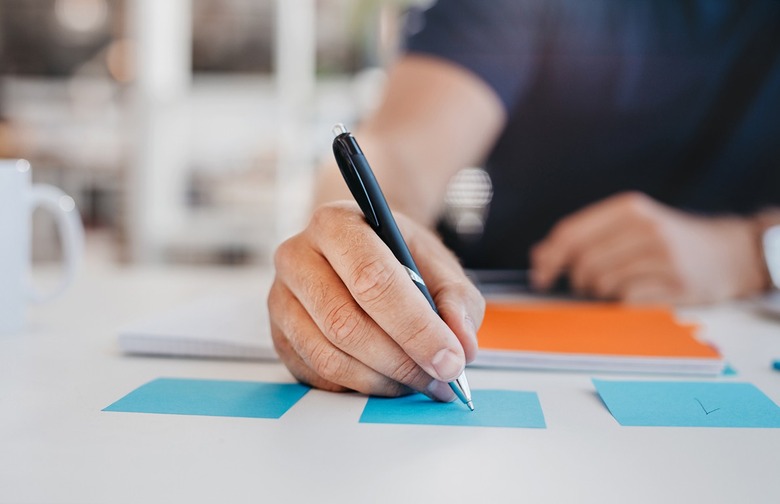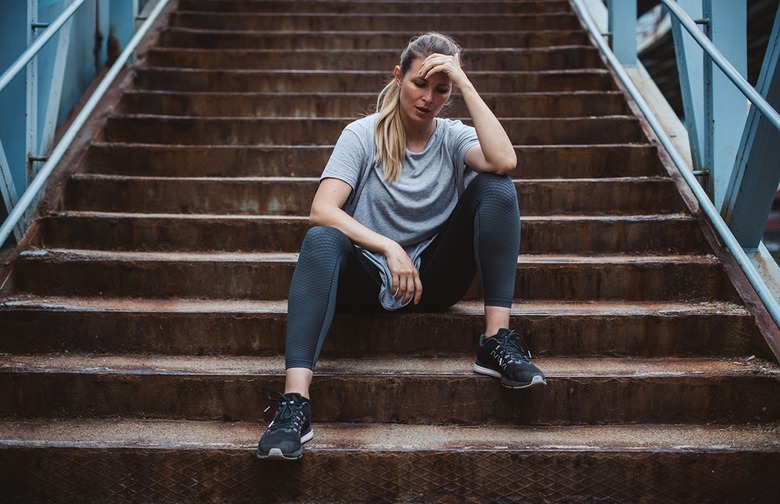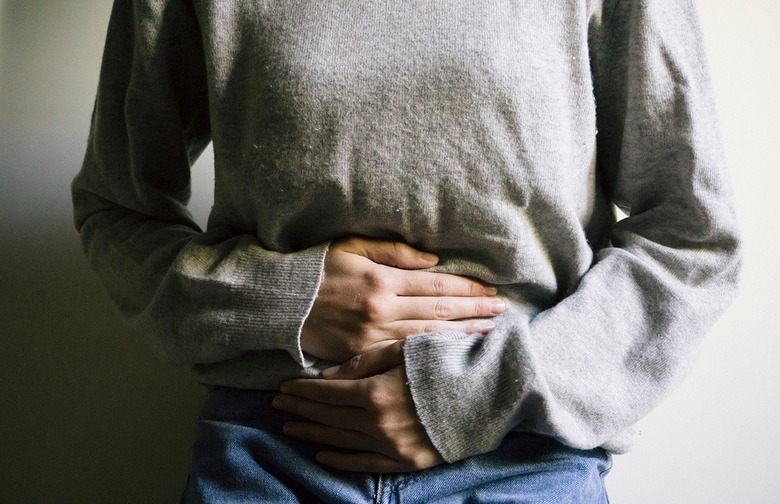This Is What Can Happen If You Don't Drink Enough Water Gallery
It's hard to pinpoint just how much water you need each day. Health professionals have different opinions, and the number of ounces your body needs can rise or fall depending on all kinds of variables. An increase in physical activity, for instance, ramps up your requirement. Salty foods can do more than ramp up your blood pressure. They can also dehydrate you, leaving you parched and reaching for water all day long.
But how are you to know if you're not drinking enough? There are some obvious signs. Thirst, for instance, is a pretty reliable cue. If you're thirsty, it's a sign that you're already partially dehydrated. But past that clear sign, your body is trying to nag you to hydrate with other more subtle symptoms.
As you get progressively more dehydrated, the symptoms will start to pile up. Your body needs water to work properly — the less water it has at its disposal, the more it's going to struggle just to perform basic functions. From the inside out, things are going to start to break down.
The effects can actually be more painful and uncomfortable than you might think. These are some of the many things that can happen to your body if you don't drink enough water.
Your mouth will feel dry
This will be your first clue that you're in need of some water. It might seem obvious, but some people try to remedy this dry-mouth feeling by guzzling a soft drink or sipping on fruit juice. While these drinks do contain water, they're just not as hydrating. In fact, soda can actively dehydrate you. If you can't stand plain old tap, try jazzing up your water by infusing some fruits in it instead of opting for a sugary alternative.
You’ll start to feel tired
After sleeping more than enough hours, you still feel fatigued. What's going on? Well, a number of things could be to blame, but dehydration is a likely cause. Without enough water to sustain them, your bodily processes will start to slow down. Dehydration can drain the energy right out of you. Drink a tall glass of water and see if you start to feel more awake.
Your body retains water
People throw around the term "water weight" pretty loosely, but you do quite literally gain water weight when you need water. This is because your body is hanging on to all the droplets of water it can get. As a result, you may feel puffiness in your face and extremities. But don't worry — this dissipates pretty quickly once you provide your body with a sufficient water supply.
Your cells actually shrink
Your body soaks up fluids from your blood and from the excess swimming around your cells. Consequently, your cells shrink like a grape shriveling into a raisin. Now you're even dehydrated on a cellular level. You want to fix that ASAP.
You’ll get a headache
Alright, so you've felt the grogginess and ignored the dry mouth. What happens next? If you go too long without loading up on fluids, you could get a nasty headache. Without enough water to replenish the needs of your cells, your brain can actually shrink from fluid loss. As the brain pulls away from the skull, you'll feel a strong and persisting headache. Ouch! But don't worry. Once you drink a nice, refreshing glass of H2O, your brain will soak it up and plump back to its normal size.
You won’t pee very often
An easy-to-see sign that you're dehydrated is in your urine. If your pee is darker in color than usual, this is a clear indication that you need more water in your life. Excessive urination, on the other hand, could be a sign you're overhydrating — or of something else entirely.
You’ll get cranky
If you don't eat enough, you know you get hangry. But did you know you could become irritable from thirst, as well? Research shows that dehydration can significantly impact your mood. Another study showed that even mild levels of dehydration caused healthy women to report worse moods and a greater difficulty completing tasks. Before you snap at someone, fill up your water bottle. Now chug it. Okay, now fill it up again. (Seriously, are you drinking water yet?!)
It’ll become harder to focus
The same two studies also investigated dehydration's effect on one's ability to think clearly. Surprise, surprise: Dehydration didn't help with mental clarity. On the contrary, it made things really fuzzy, with even a dehydration level of one percent affecting participants' focus. Before you go into an exam or prep for a big meeting at work, make sure you have a water bottle handy. You don't want to get stuck in a situation where your concentration is suffering just because you forgot to drink water!
Your memory suffers
Alright, so you're (somehow) still not taking health advice and have neglected to drink water. You'll likely start to forget things. Maybe you leave your keys on the kitchen counter or maybe you can't recall the assignment your boss gave you at this morning's meeting. Whatever information is being thrown at you, being dehydrated makes you less likely to remember it. Science backs this up — though your long-term memories are safe and sound, your short-term memory is going to suffer.
Your breathing and heart rate may be faster than normal
At this point, you're really putting your body through the wringer. As you lose fluids, your body has to borrow from its available water source: your blood. Your blood vessels grow emptier and your heart has to work harder to pump blood to your extremities. It picks up speed and requires more oxygen, resulting in a faster heart rate and quicker breathing.
Your workouts will get harder
Your body is already dehydrated — once you start working out, it's being pushed even further. You begin to lose more fluids, sweating them out. Without a sufficient water supply, your body struggles to convert the stored energy from food into energy it can use. As a result, you're going to feel more easily fatigued at the gym and your workout performance will suffer. You're also at a greater risk for heat exhaustion if you're engaged in intense physical activity.
Your skin dries out
Chronic dehydration is a little-known cause of dry skin. Where's your skin to get all that moisture all on its own? Moisturizing topically — no matter how natural or "rejuvenating" your method — isn't enough. Make sure you stay hydrated from the inside out.
You may become constipated
Water is absolutely crucial to keep things moving smoothly in your digestive system. Without it, you can get stopped up. How? Simple: Your body is retaining water from every source possible, including your food as it digests.
You increase your risk of kidney stones
Your kidneys rely heavily on water to function. Without sufficient water diluting it, your kidneys are forced to work harder to filter your blood. This can end up wearing on the organs over time, potentially even causing kidney stones.
You may feel dizzy or faint
If you've gotten to this point of dehydration, it's time to see a doctor. Dizziness or fainting is a sign that you're dangerously dehydrated. Here are some other signs to look out for, and some tips for how to hydrate fast!
More from The Daily Meal:
These 10 Beverages Are More Hydrating Than Water
50 Essential Summer Safety Tips
